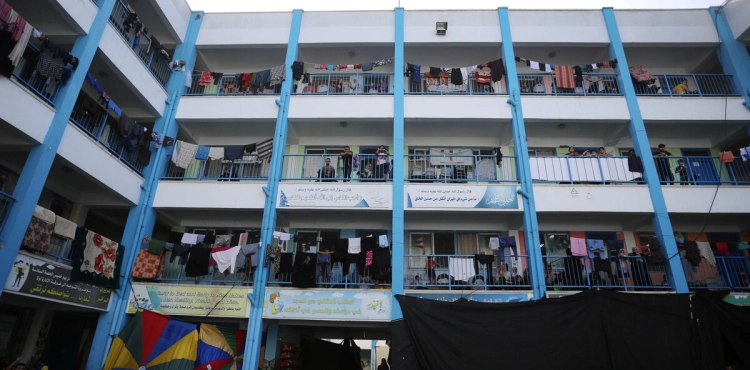The 2.3 million residents of the Gaza Strip are facing an increasing struggle to obtain food, water and safety on Sunday, in light of Israel's escalation and threat to invade the Strip and continue its air strikes and artillery shelling.
The warning period issued by the occupation army to 1.1 million Palestinians in the Gaza Strip to leave their homes and migrate from north to south ended at one o’clock this afternoon. While hundreds of thousands of them were displaced, others crowded into hospitals there.
Supported by an increasing deployment of US warships in the region, Israeli forces were stationed along the Gaza border and conducted training exercises in preparation for what Israel said was a large-scale campaign to dismantle the armed movement.
A week of violent air strikes launched by the occupation led to the destruction of entire neighborhoods in the Gaza Strip, but they failed to stop the firing of rockets at Israel.
The Gaza Ministry of Health said that 2,329 Palestinians have been martyred since the outbreak of fighting, the majority of them civilians, a higher number than recorded in the 2014 Gaza war. This makes the current war the bloodiest of the five Gaza wars for both sides. More than 1,300 Israelis were killed, while reports indicate that about 400 Israelis are still missing.
The occupation announced today that it will refrain from targeting a single road south of the Gaza Strip from 10 a.m. until 1 p.m., and once again urged the Palestinians to leave the north en masse.
Hamas spokesman Jihad Taha told The Associated Press in Beirut that Israel “does not dare to wage a ground battle” in Gaza because of the Israeli prisoners.
He hinted at the possibility of Hezbollah and other regional players entering the battle if Israel launches a ground invasion. But he refused to say whether the movement had obtained any concrete pledges in this regard.
On the other hand, the United Nations and relief organizations said that the rapid displacement of Gaza residents, coupled with the complete Israeli blockade of the 40-kilometre-long coastal strip, would cause untold human suffering.
The World Health Organization said the evacuation "could be a death sentence" for more than 2,000 patients in northern hospitals, including children in incubators and patients in intensive care.
It is expected that the fuel needed to operate emergency generators in Gaza's hospitals will run out within two days, according to the United Nations, which said that this would put the lives of thousands of patients at risk.
Gaza was already experiencing a humanitarian crisis due to increasing shortages of water and medical supplies due to the Israeli blockade, which also forced power plants to stop operating without fuel.
With some bakeries closed, residents complained of their inability to buy bread for their children.












